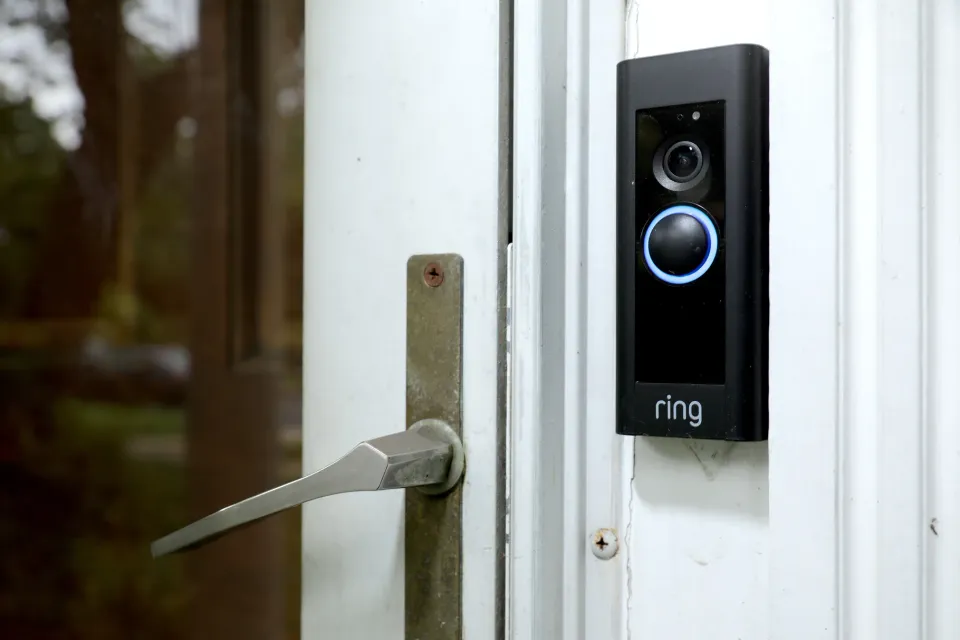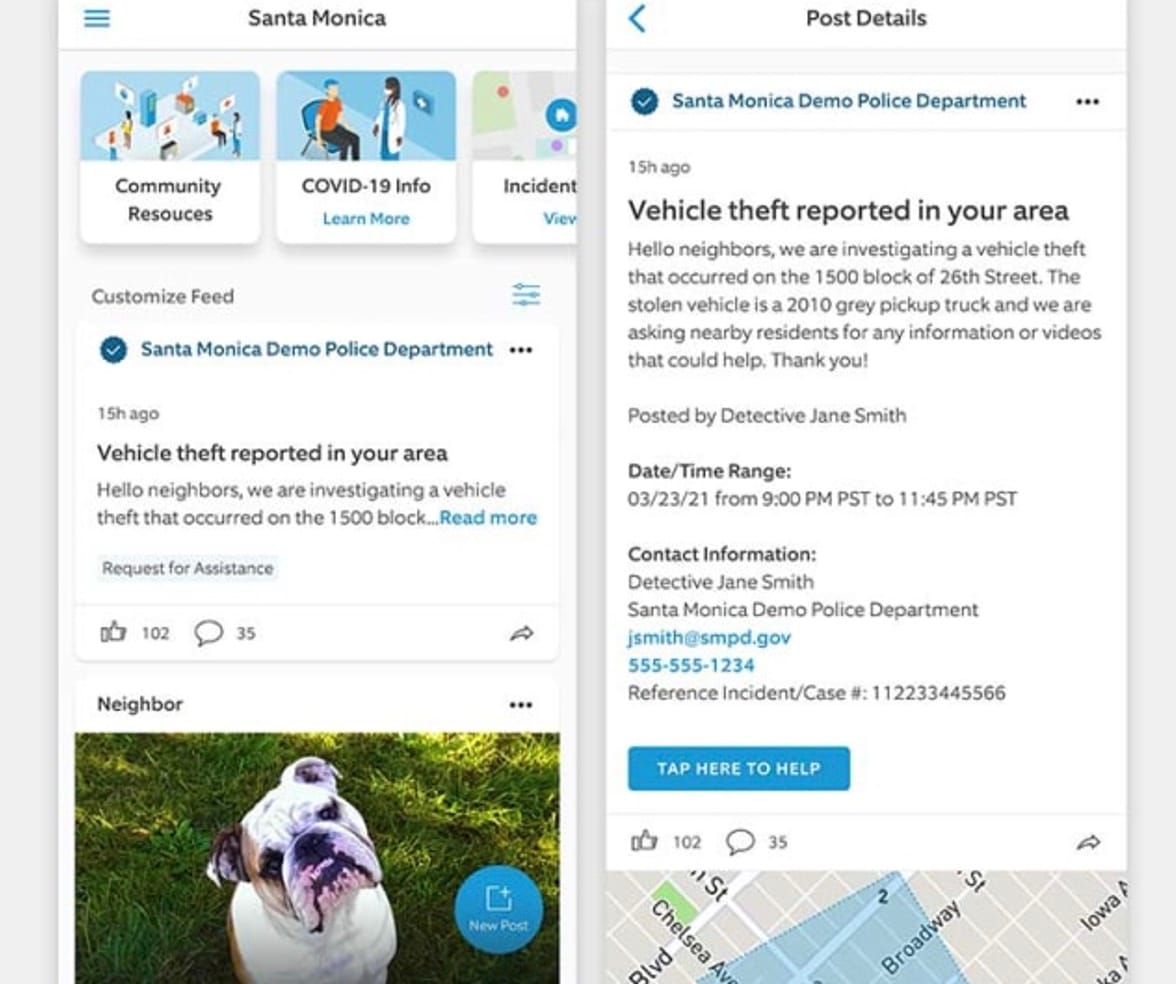Ending Amazon Ring's police partnerships, for good

In late January it seemed like every news outlet ran a story about a doorbell. Well... not just a doorbell: Amazon Ring is more panopticon than pizza alarm. Ring's ubiquity and the pleasure with which it collaborates with police have made the device a huge target for anti-surveillance organizing like ours: Fight for the Future's first anti-Ring campaign launched in 2019.
Unusually, January's news was about the death of a feature. In a short blog post, Ring announced that its “Request for Assistance” (RFA) tool would be shuttered. This change is a lot bigger than it sounds.
When RFA was enabled, police departments had an Easy Button for vacuuming up Ring footage without a warrant. Now, that button is gone. This is a really important victory for the many groups that have building opposition to Amazon’s surveillance. But what exactly does it mean, and where do we go from here? Below's the backstory. (P.S. We'll be at SXSW! Scroll down for details.)
Bad Neighbors
If you’ve ever used Ring, you’ll know about Neighbors. If you haven’t, you might not know that Amazon Ring has a companion app that feeds photos, videos, and “crime alerts” into an infinite-scroll police blotter.
The Neighbors interface raises a lot of immediate red flags. The app gamifies neighborhood reporting, “turn[ing] what seems like a perfectly safe neighborhood into a source of anxiety and fear.” It’s a hotbed for racial profiling and suspicion. It is especially, exceptionally, a playground for the police.
For years, Amazon has granted police officers privileged access to Neighbors as part of Ring's cozy relationships with over 2,500 police departments. Since 2021, one of the most direct access points has been a tool called “Request for Assistance” (RFA). An RFA post notifies Ring users within a geographic range and asks them to supply video footage to the cops, nominally in connection with an investigation.

If Ring users didn’t supply enough footage, there was always a backup. Ordinary warrants work too, and in 2022, inquiries from Senator Ed Markey led to the discovery that police have obtained Ring footage without permission and without notification. But RFA was easy, fast, and conveniently warrant-free; it was a streamlined way to turn everyone into an informant.
Now, the RFA era is over. Cops have to return to slower, "legal" forms of evidence collection. (Some don't like this very much) We're celebrating this as a win for civil rights. But you can't trust a monopoly to self-regulate. Unquestionably, Amazon-initiated action will never go far enough.
What next?
Ending RFA is good. But Amazon will happily concede a Neighbors feature if it's allowed to manifest its broader goal: a private policing ecosystem where they're the sole vendor.
That's why our Ring campaign goal is bigger than shutting down one or two of the most frightening features. We need to end Amazon's police partnerships, prevent new partnerships from forming, and substantively address the threats posed by Ring's surveillance and data collection network. Wins like ending RFA or bringing FTC action against the company propel us forward.
Amazon can’t keep skirting around the democratic process and surveilling us without our consent. Regulatory agencies and lawmakers—on all levels, including in cities and towns—need to enact policies and regulatory protections to ensure police departments cannot enter surveillance relationships, like Amazon Ring, ever again. If you're interested in getting involved in banning Ring partnerships in your city, we have a toolkit available here.
See you at SXSW?!
Fight for the Future will be well represented at SXSW!
- Hang out on March 10 at the Care House for an all-afternoon event, full schedule here.
- On March 11, join us at a panel where we'll be discussing Big Tech's role in suppressing abortion information with some friends in the reproductive justice space.
Stray Links
- The Story of Late Capitalism as Told Through Panera Bread (The Nation)
- Russia uses facial recognition to detain Navalny funeral attendees (Semafor)
- This $4 Billion Car Surveillance Startup Says It Cuts Crime. But It Likely Broke The Law. (Forbes)
- “Playbook of Fear” Fails to Sway Voters in Austin and Houston DA Races (Bolts)

Member discussion